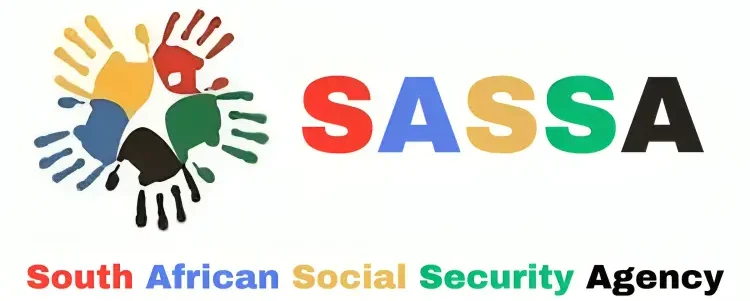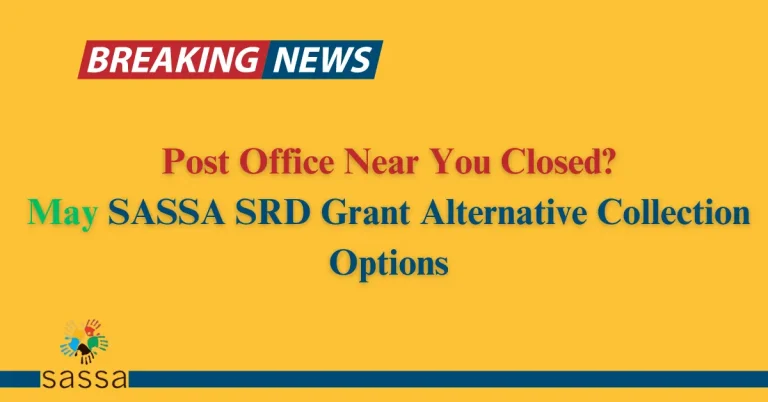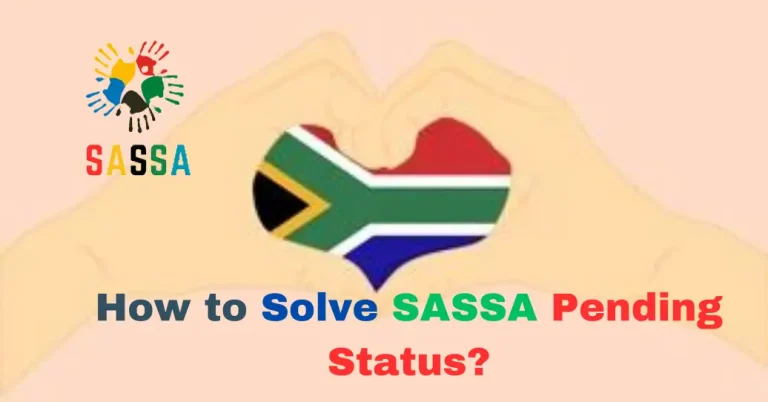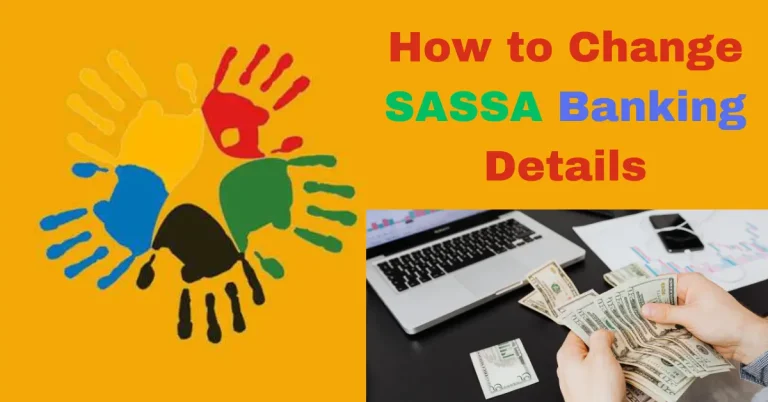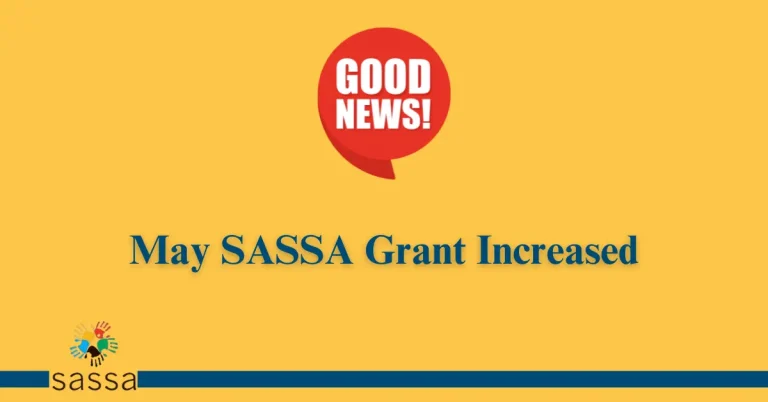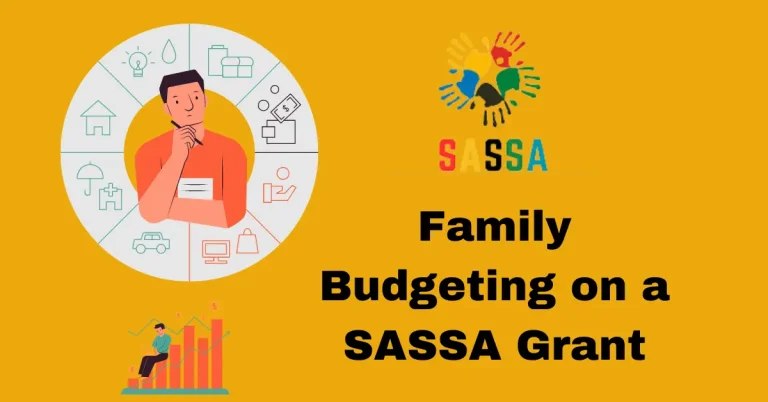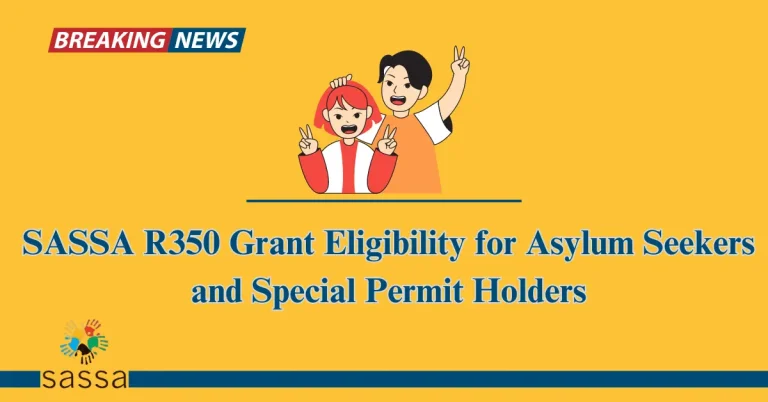Latest Insights Into SASSA Social Grants For 2024 Breaking News
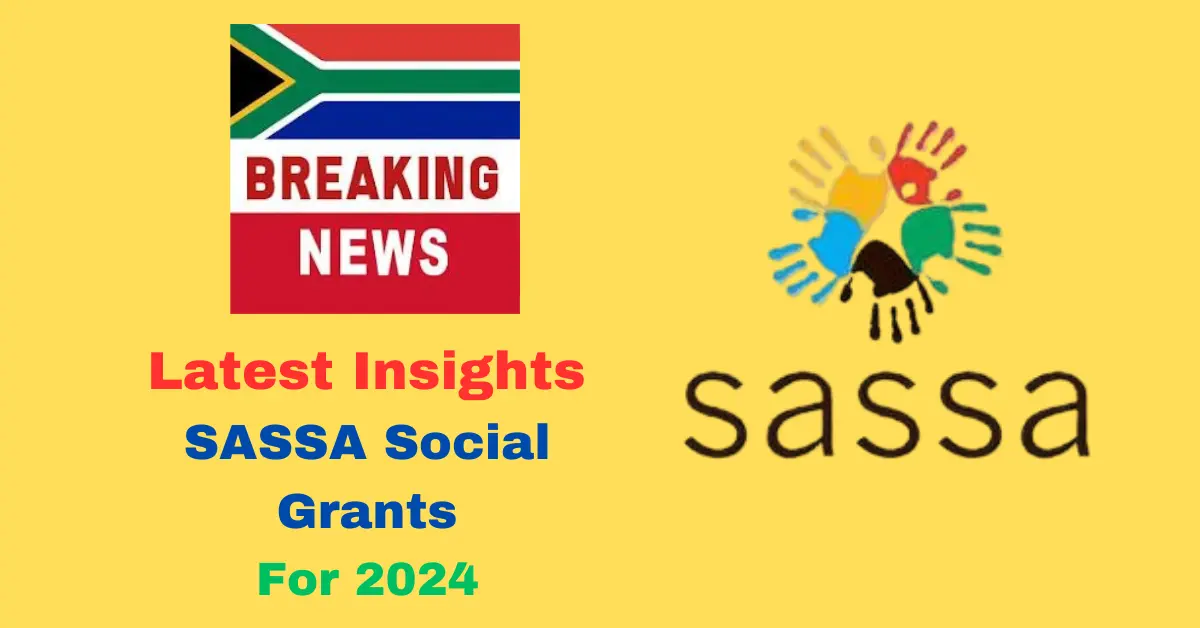
SASSA Social Grants Status Check
In South Africa, nearly 18 million people depend on SASSA Social Grants regularly. These grants, administered by SASSA and aimed at meeting basic needs like food, clothing, or shelter, are a vital part of the South African social welfare system.
The article explains the different types of social grants offered by SASSA, their financial aid, and eligibility requirements. This will help you determine if you are eligible for one of them.
SASSA social grants increase rundown
The Old Age, Veterans’, Disabled, Care Dependent, and Disability Grants
- Amount As per the latest update, Old Age, Disablement, and Care Dependency grants are approximately R1,980 a month. War Veterans Grants are slightly higher to reflect the extra support given to veterans.
- Increased New Amount With this R100 boost, recipients of these grants can expect to receive R2,080 a month in October 2024. This increase will take place in phases, starting with an R90 increase in April to bring the grant up to R2,070. Then, an additional R10 in October.
Understand SASSA’s role in social grants
South African Social Security Agency is the leading agency in South Africa for social welfare. It administers social grants and aids the most vulnerable people in the country. SASSA is more than just a payment agency.
It represents the commitment of the government to fight poverty, promote social inclusion, and provide a safety net for those who are in need. The SASSA section gives a detailed look at how it functions and the impact that SASSA has on millions of people.
The Social Security Backbone
SASSA is a department of the Department of Social Development. Its mission is to ensure the stability of South Africa’s socio-economic system. The aim is to make sure that the financial aid reaches those people who would otherwise struggle to cover their necessities.
The grants of SASSA are geared towards different segments, such as the elderly, the disabled, the children, and the veterans. This reflects a holistic approach to social welfare.
Read more: What to do if a SASSA SRD status “Identity verification failed”?
A Comprehensive Framework for Assistance
The responsibilities of SASSA include a wide range of activities.
- Approval and Assessment SASSA is responsible for assessing social grant applications. The process includes verifying the eligibility of applicants and ensuring they meet all criteria for each type of grant. SASSA uses rigorous evaluation procedures to make sure that the support it provides is going to people who are truly in need.
- Disbursement is central to SASSA’s role. It coordinates monthly grant disbursements. It involves a massive payment infrastructure that ensures timely payments and security to millions of recipients across the nation.
- Support and Information SASSA is a major source of social grant information. The SASSA educates and supports the public about the different types of social grants, the application process, and the eligibility criteria and answers questions and concerns via various channels including local offices and hotlines.
- Prevention and Management of Fraud: A system so vast and important as the social grant program, is essential to protect against fraud and misuse. SASSA uses strict controls to prevent and detect fraud. This ensures that resources remain available for people who need them.
Challenges and Impact
SASSA has a profound impact on South African Society. SASSA provides financial support to thousands of South Africans, helping them to achieve their basic needs. It also helps to reduce poverty and inequality. The agency is faced with many challenges. These include the need to improve systems to reduce fraud, simplify application processes, and increase accessibility.
The role of SASSA in the administration of social grants forms a key part of South Africa’s social welfare systems. Understanding this role will help beneficiaries, as well as the public at large, better understand the complexity of managing social grants.
SASSA Social Grants Types
In South Africa, there are several different SASSA grants, such as the Child Support Grant, Old Age Pension, Disability Grant, and Care Dependency Grant. The grants help families and individuals meet their basic needs such as clothing, food, and housing.
SRD 350 Grant
The R350 SRD grant is also called the Social Relief of Distress Grant. It is a type of social assistance provided by SASSA for individuals in financial hardship. This grant provides temporary financial assistance to those who need help or are not employed. The grant amount is R350 per person, paid on a month-to-month basis.
Individuals must have attained the age of 18 and not receive any form of assistance. The individual must not have a job or a salary that is above a specified threshold.
Tips and reminders
- Application Windows Be mindful of dates that may be changed based on the government’s policy.
- Accuracy in Information: Make sure all the information you provide during your application is true and accurate to avoid any delays.
- Beware scams. Fraud alert. Do not give personal details to unreliable sources and only apply through the official SASSA channels.
- Change Your Information If you change your situation (i.e. if you get a new job), amend your details via the SASSA SRD Portal or by contacting SASSA directly.
The Older Persons Grant
You can apply for the SASSA Old Age Grant if you’re over 60 and have no income. The grant is designed to help older people who cannot work and are in poverty. The grant amount is R2090 a month and is distributed regularly.
You must meet the following criteria to be eligible for an Older Person Grant:
- Individuals must be South African nationals or permanent residents
- You must be at least 60 years old
- The applicant must not receive any form of other social assistance.
- Please provide your ID card and birth certificate with a 13-digit barcode for you as well as your spouse. In the absence of an ID card or birth certificate, use the SASSA’s recommended method to verify your identity.
Reminders and Tips for Older Person Grants
The Older Persons Grant is a great way to ease financial pressure for South Africans above 60 years of age. Consider the following reminders and tips to streamline the application process.
- Verify Eligibility. Before applying, double-check to make sure you are eligible. You must be 60 or older and a South African national or permanent resident.
- Collect Necessary Information: Prepare the required documentation in advance. Included in this is your barcoded 13-digit ID and, if necessary, your spouse’s documentation. You can use alternative methods of identification if you don’t have your ID or birth certificate.
- Update Your Personal Information: Ensure that all of your details in your application are accurate and current. If you change your name, address, marital situation, or finances, please notify SASSA immediately to help ensure a smooth grant processing.
- Don’t Wait: Do not wait to apply as soon as your eligibility is met (e.g. when you reach 60 years old) to receive the grant as quickly as possible. The processing times may vary, so submitting your application as soon as possible is best.
- SASSA can provide clarification If you have any questions about the application process, please contact SASSA. To ensure that your application is completed correctly, it’s essential to understand every step.
- Avoid Scams Only apply through official SASSA channels. Scams or fraudulent schemes may be targeting older people, offering to speed up your application in exchange for money.
Disability Grant
Disability grants are provided for people who cannot work more than 6 months due to a mental or physical disability. You can apply whether you’re disabled permanently or temporarily.
The grant amount is R2090 a month and is distributed regularly. The SASSA offices are the nearest places to apply for this grant.
To qualify for Disability Grant:
- You must be aged between 18 and 59.
- A medical or functional evaluation should confirm your disability.
- A referral form or clinical information validating the disabilities must be given.
- Both you and your partner must meet the means test.
- It is not advisable to live in an institution funded by the State.
- No other grants should be given to you.
- Please submit your barcoded 13-digit ID document for both you and your spouse. Use the SASSA’s recommended method of verifying your identity if you do not have a birth certificate or ID card.
Reminders and Tips for Disability SASSA Social Grant
- Begin with a Comprehensive Medical Assessment: Make sure you have an in-depth medical report that outlines your condition. It is important to have this document as it will determine your eligibility.
- Familiarize yourself with the requirements of the Means Test. The test is used to assess your financial status and determine if you are eligible. You can prepare for the test by knowing the eligibility criteria.
- Gather all Required Documentation: Be sure to have your identification documents and medical reports for you as well as your spouse. Learn about the alternative methods of verification accepted by SASSA if standard identification documents cannot be obtained.
- In-Person Application with All Required Paperwork: Even though the first application might require you to visit the SASSA, having all the necessary paperwork can speed up the process. It is important to check if you need an appointment and what safety protocol exists, particularly for those with compromised health.
- Get Help if You Need It If the application process is difficult, you should not hesitate to ask for help. SASSA can offer guidance and a variety of NGOs provide support for individuals who are applying for disability grants.
- Stay up to date on policy changes: SASSA’s policies and grant amount can change. Keep up to date with any changes that may affect the status of your grant or its amount by following official SASSA communication.
- Prepare for Reassessment SASSA can require periodic reassessments, particularly for temporary disability. Be prepared to go through this process and keep all your medical records up-to-date.
- Direct Deposit is a Good Option: The direct deposit of your payment into your bank account can be convenient and help reduce theft. Ensure SASSA has your correct banking details.
- Beware of Scams: Do not trust anyone or any organization that promises to speed up your application in exchange for money. Use only official SASSA channels to submit your applications and make queries.
- Advocacy for your Rights: You have the right, if you experience difficulties in the application process to seek additional assistance and appeal any decisions. Knowing your rights will empower you during this application process.
Children Support Grant
You can request the grant if you’re a parent biological or primary caretaker of a child and you cannot meet their basic needs. The child’s age must not exceed 18 years.
Child support payments are R510 a month per child. You can also read: What to Do Approved for R350 Grant but No April SASSA SRD Payment
You must meet the following criteria to be eligible for the child support SASSA social grant:
- The applicant as well as the child must both reside in South Africa.
- The birth certificate of the child is required.
- You must be younger than 18 years old
- Both you and your spouse will be required to present a barcoded 13-digit identity document or smart ID card. In the absence of an ID card or birth certificate, SASSA accepts an alternative form of identification.
- You must be the main caregiver of the child/children.
- The applicant as well as the spouse must both meet the criteria of the Means Test.
- The child maintenance grant is not available for families with more than six children.
- It is not acceptable for the child to be in the care of an institution.
- The child must be in school and show proof of attendance. The child maintenance grant will still be paid if the certificate is not produced or if the child does not attend school.
Reminders and Tips:
- Check Eligibility: Before applying, make sure that you and your child both meet all the criteria. The criteria include residency in South Africa, the age limit, and financial assessment through the Means Test.
- If you are not the biological parents, you must prove that you are the primary caregiver. You may need to provide additional documents or affidavits.
- Understanding the Means Test is important: You should be familiar with how the Means Test evaluates your financial status to determine whether you are eligible for a grant. This step can be simplified by gathering all the relevant financial documentation in advance.
- The School Attendance proof: If your child is enrolled in school, then having a recent record of attendance or proof that you are registered can speed up the application process. This does not mean they will be disqualified.
- There is a maximum number of eligible children that a caregiver may care for. If you care for six or more children, plan accordingly.
- Ask for Clarification: If you have any questions or encounter problems with your application, don’t be afraid to ask SASSA representatives. It is important to provide accurate information in order to avoid unnecessary delays.
- Keep up to date with any updates: Policy, grant amount, and procedure can change. Stay informed of all announcements made by SASSA about the Child Support Grant.
- Avoid Scams: Watch out for scams that target recipients of social grant applications. The SASSA should receive all applications. There are no application fees.
Foster Child Grant
SASSA provides a social grant to help families care for non-biological children. The grant will help those families that are looking after children in need. It is given out monthly.
It is R1130 per child, under 18 years old and in the care of the family. Families must register as foster parents with the Department of Social Development to be eligible for this grant.
To qualify for the Foster Child Grant:
- Foster parents will be required to submit a court order that confirms the child’s custody.
- Foster parent(s) must care for the child.
- Foster parents must supply a barcoded 13-digit identity document, or smart ID card for the spouse and applicant.
- The birth certificate of the child will also be needed. SASSA may use any alternative identification method if the birth certificate or ID is not available.
How to Apply for a Foster Child Grant
- Understanding the Criteria for Eligibility: Make sure you are familiar with all the requirements to be eligible for the Foster Child Grant. You must have a court order that is valid and be registered as a foster family at the Department of Social Development.
- Securing the court order: A court order proves the legal custody of the child in your care. When applying for the grant, ensure that it’s current and easily accessible.
- Gather Required Documents: Prepare your documents and those of the child, as well as any other documents that are required. Understand the alternative identification options SASSA will accept if the birth certificate or original ID is not available.
- Register as a Foster family: This is the first thing you should do if you are not yet registered with the Department of Social Development as a foster parent. The registration of a foster family is required to apply for the Foster Child Grant.
- Keep your documentation organized: Create and maintain an archive of all documents, correspondence, and other important information related to the foster child you are caring for and any grant applications. Included are the court order and identification documents as well as any communication with SASSA or the Department of Social Development.
- Keep Up to Date on Policy Changes. Stay informed about any policy changes, including the amount of grants, grant amounts, and application procedures, by checking SASSA’s official announcements.
- You should update your information regularly. Keep SASSA updated on any changes to the status of the child or you. Changes in the foster child’s address, phone number, and school status are all included.
- Advocate for Child’s Interest: Prioritize the best interest and welfare of any foster children in your care. It is important to ensure that all grant money goes towards the foster child’s benefit and advocate for his or her rights in any interaction with SASSA.
Caring Dependency Grant
Families who care for an adult or child with a mental or physical disability are eligible. The grant will help those families that are caring for someone who cannot care for himself.
The grant is distributed on a month-to-month basis. This grant amounts to R2090 per person, each month. It is payable for dependents who are under 18 years of age or have a disability.
To qualify for the Care Dependency Grant
- All families must include an adult or child
- The child must be under 18 years old.
- As a starting point for the assessment, applicants should submit either a form of referral or clinical data about their child.
- To confirm the child’s disability, a functional or medical assessment must be performed.
- Both the applicant and their spouses must meet all requirements of the Means Test (except for foster parents).
- It is not appropriate to place the care-dependent children in an institution funded by the State.
- Birth certificates of children will be needed.
- Both the applicant and spouse must present a barcoded 13-digit identity document or a smart ID card. If you do not have a birth certificate or ID, then an alternative form of identification approved by SASSA will suffice.
Care Dependency Grant Tips
- Verify Eligibility Criteria Carefully review eligibility requirements. It is important to confirm that your dependent child is either under 18 years old or is permanently disabled and in need of care full-time.
- Compile Comprehensive Medical Reports Obtain medical assessments and detailed reports that document clearly the condition of your dependent. They should show the level of care needed and that the person is not able to take care of themselves because they are disabled.
- Prepare Required Documentation Make sure you are prepared with all the necessary documentation, such as birth certificates, medical reports, smart cards, or documents barcoded 13 digits. You should be familiar with the alternative identification methods that SASSA accepts if standard documents cannot be obtained.
- Understanding the Means Test: Familiarize yourself with the Means Test criteria that assess your financial status to determine whether you are eligible for the grant. To streamline the process, prepare all financial documents.
- As Early as You Can: Begin the application as soon as possible after you’ve gathered your documents and other information. It is important to start the application process as soon as possible, given that processing time and financial assistance are often urgently needed.
- Ask for Help if Needed: Don’t be afraid to ask for assistance if you run into any problems during the application. SASSA officials can provide guidance and assistance.
- Be Informed about Policy Changes: Stay up-to-date with changes to SASSA policy or procedure that may affect the Care Dependency grant. Check official SASSA updates or ask social workers about the latest information.
War Veterans Grant
War Veterans Grant, or War Disability Grant, is an SASSA special grant available for South African Veterans who were injured during military service. The war veterans’ grant amounts to R2110 per month.
To be eligible for a War Veterans Grant:
- Veterans must receive a pension from military service and be discharged.
- Both you and your spouse must meet the criteria of the Means Test.
- It is not a good idea to live in an institution funded by the state.
- No other grants or social benefits are allowed.
- Either you should be 60 or older, or disabled
- Both you and your spouse must submit your barcoded 13-digit ID documents. You will be required to use the SASSA’s prescribed method of proving your identity if you do not have a birth certificate or ID card.
Do you know how to apply for the War Veterans Grant?
- Verify your eligibility: Be sure that you satisfy all of the criteria to qualify for the War Veterans Grant. It is important to note that you must be injured or disabled as a result of your military service. In some cases, age and income criteria may apply.
- Know the Means Test: Become familiar with the Means Test SASSA uses to determine grant eligibility. It involves an assessment of your assets and income to determine if you meet the threshold. This part of the application can be streamlined by gathering your financial data in advance.
- Ask for help from veterans’ organizations Many veteran’s associations and organizations offer assistance to those who are applying for benefits. These organizations can offer valuable support and guidance throughout the entire application process.
- Make sure medical documentation is comprehensive: Medical records should clearly show the disabilities or injuries you sustained while serving in the military. These documents should be detailed and up to date, with information about how the condition impacts your ability to function and your everyday life.
- Maintain Copies of Documents Submitted: Copy all the documents that you send to SASSA. This includes your application, your medical records, and any identification documents. Keep a record of your personal information to help you with future questions or if the need arises for re-submission.
Grant-in-Aid
Grant-in-Aid can only be provided to current grant recipients who cannot care for themselves at home and need full-time assistance. The grant is available only to recipients of the Old Age, Disabilities, or War Veterans Grants. It’s a top-up to their primary grant. This grant is to be used to employ someone to provide them with in-house support. The grant is topped up by R510 per month.
Criteria for Eligibility
- You must be an active recipient of the Old Age or Disability Grant.
- You must need full-time assistance due to an illness or disability.
- A medical evaluation is required to verify the need for care.
Application Tips for Success
- Complete Documentation Be sure to fill out all documentation completely and correctly. Incomplete or incorrect information may delay the processing of your application.
- Medical Proof: Your medical evaluation is an important part of your application. Be sure to document your medical condition, and that you need full-time nursing care.
- Stay informed. Keep up to date with any updates or changes in grant amounts and policies. The official SASSA website and SASSA offices provide reliable information.
- Ask for Assistance Do not hesitate to seek assistance from SASSA or social workers if you are unsure of any aspect of the application. These professionals can offer valuable advice and support.
- Care Plan – Start early planning your home care requirements. Discuss the grant-in-aid with potential caregivers, and the arrangements you have made. Include the compensation and expectations of the caregivers.
- Regular updates: Inform SASSA of any changes to your medical condition or needs. Updates ensure your grant is accurate.
If you have any Questions related to SASSA click here.
Conclusion
SASSA provides a wide range of grants for South Africans who need financial help. The SASSA Social Grants each have their own benefits and eligibility criteria, while the grant amounts vary depending on the needs of recipients.
Individuals should research all the available grants, and then apply for the grant that best suits their requirements. Explore the options that SASSA offers if you, or someone else you know, needs financial help. You can find the financial assistance you need with the right grant.
